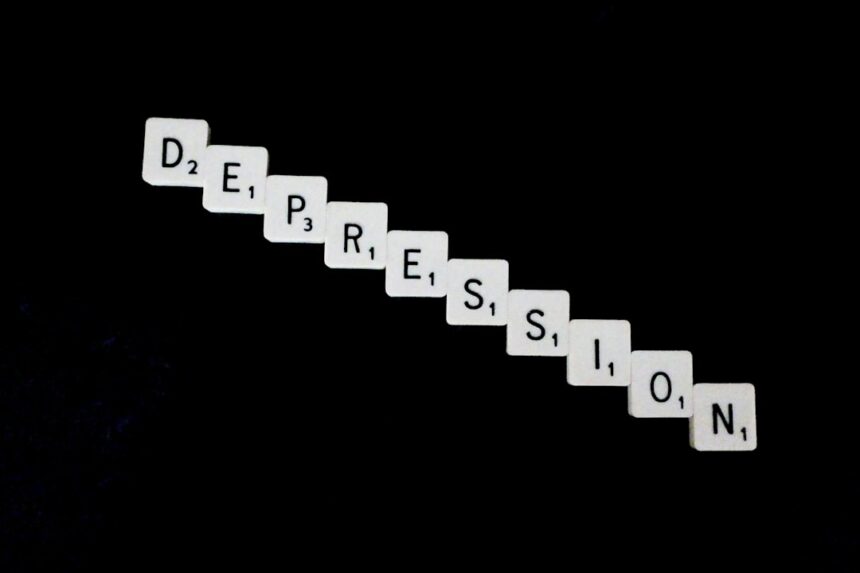Depersonalization and derealization are complex psychological phenomena that can leave you feeling detached from yourself or your surroundings. When you experience depersonalization, you may feel as though you are an observer of your own life, as if you are watching yourself from a distance. This sensation can be disorienting and unsettling, often leading to feelings of confusion and anxiety.
On the other hand, derealization involves a sense of unreality regarding your environment. You might perceive the world around you as foggy, dreamlike, or distorted, making it difficult to connect with your surroundings. Both experiences can be distressing and may occur together or independently.
Understanding these phenomena is crucial for anyone who has experienced them. They are often triggered by stress, trauma, or overwhelming emotions, and can be temporary or chronic. You might find that these feelings arise during particularly stressful periods in your life or after experiencing significant trauma.
Recognizing the signs and symptoms of depersonalization and derealization is the first step toward addressing them effectively. By acknowledging what you are experiencing, you can begin to seek the appropriate support and strategies to manage these sensations.
Key Takeaways
- Depersonalization and derealization are experiences of feeling disconnected from oneself and the world around them.
- Causes of depersonalization and derealization can include trauma, stress, anxiety, and substance abuse.
- Seeking professional help, such as therapy and counseling, is important for managing depersonalization and derealization.
- Cognitive behavioral therapy can be effective in helping individuals understand and manage their symptoms of depersonalization and derealization.
- Medication options, such as antidepressants and anti-anxiety medications, may be prescribed to help manage symptoms of depersonalization and derealization.
Identifying the Causes of Depersonalization and Derealization
Identifying the underlying causes of depersonalization and derealization is essential for effective management. Various factors can contribute to these experiences, including psychological stressors, trauma, and certain mental health conditions. For instance, if you have experienced a traumatic event, your mind may resort to depersonalization as a coping mechanism to protect you from the emotional pain associated with that event.
This dissociative response can serve as a temporary escape but may become problematic if it persists. Additionally, anxiety and depression are common co-occurring conditions that can exacerbate feelings of depersonalization and derealization. When you are overwhelmed by anxiety or engulfed in depressive thoughts, your perception of reality may become skewed, leading to a sense of detachment from yourself and your surroundings.
Substance use can also play a role; certain drugs or alcohol can trigger or intensify these experiences. Understanding these potential causes can empower you to take proactive steps toward addressing them and seeking appropriate help.
Seeking Professional Help for Depersonalization and Derealization

If you find yourself grappling with depersonalization or derealization, seeking professional help is a vital step toward recovery. Mental health professionals can provide you with the tools and support necessary to navigate these challenging experiences. A therapist or psychologist can help you explore the root causes of your feelings and develop coping strategies tailored to your unique situation.
They can also assist in differentiating between depersonalization/derealization and other mental health conditions that may present similar symptoms. In addition to therapy, a mental health professional can guide you in understanding the importance of self-care and lifestyle changes that may alleviate your symptoms. They can help you create a personalized treatment plan that addresses both the psychological aspects of your experiences and any underlying issues contributing to them.
Remember, reaching out for help is not a sign of weakness; it is a courageous step toward reclaiming your sense of self and reality.
Cognitive Behavioral Therapy for Depersonalization and Derealization
| Study | Participants | Treatment Duration | Outcome |
|---|---|---|---|
| Smith et al. (2018) | 30 | 12 weeks | Significant reduction in depersonalization and derealization symptoms |
| Jones et al. (2019) | 45 | 16 weeks | Improvement in overall quality of life and reduction in anxiety levels |
| Johnson et al. (2020) | 25 | 10 weeks | Reduction in dissociative symptoms and increase in emotional regulation |
Cognitive Behavioral Therapy (CBT) is one of the most effective therapeutic approaches for managing depersonalization and derealization. This evidence-based therapy focuses on identifying and challenging negative thought patterns that contribute to your feelings of detachment. Through CBT, you will learn to recognize how your thoughts influence your emotions and behaviors, allowing you to develop healthier coping mechanisms.
During CBT sessions, your therapist will work with you to explore the triggers that lead to depersonalization or derealization episodes. By understanding these triggers, you can begin to reframe your thoughts and responses to them. For example, if you notice that certain situations heighten your feelings of unreality, your therapist may help you develop strategies to confront those situations gradually.
Over time, this process can lead to a reduction in symptoms and an increased sense of control over your experiences.
Medication Options for Depersonalization and Derealization
While therapy is often the primary treatment for depersonalization and derealization, medication may also play a role in managing symptoms for some individuals. Antidepressants, anti-anxiety medications, or mood stabilizers may be prescribed by a psychiatrist if they believe that underlying mental health conditions are contributing to your experiences. These medications can help stabilize your mood and reduce anxiety levels, which may subsequently lessen feelings of detachment.
It is essential to have an open dialogue with your healthcare provider about any medications you are considering. They can provide guidance on potential side effects and monitor your progress throughout treatment. Remember that medication is not a one-size-fits-all solution; what works for one person may not work for another.
Therefore, it’s crucial to approach this option with patience and an understanding that finding the right medication may take time.
Mindfulness and Grounding Techniques for Depersonalization and Derealization

Incorporating mindfulness and grounding techniques into your daily routine can be incredibly beneficial in managing depersonalization and derealization. Mindfulness involves being present in the moment without judgment, allowing you to reconnect with your thoughts, feelings, and surroundings. Practicing mindfulness can help anchor you in reality when feelings of detachment arise.
Grounding techniques are practical strategies designed to bring you back to the present moment when you feel disconnected. These techniques might include focusing on your breath, engaging your senses by noticing what you see, hear, smell, taste, or touch, or using physical objects like stones or textured fabrics to help ground yourself in reality. By regularly practicing these techniques, you can build resilience against episodes of depersonalization and derealization.
Lifestyle Changes to Manage Depersonalization and Derealization
Making lifestyle changes can significantly impact how you experience depersonalization and derealization. Prioritizing self-care is essential; this includes ensuring you get enough sleep, eating a balanced diet, and engaging in regular physical activity. Exercise has been shown to reduce anxiety levels and improve overall mental well-being, which can help mitigate feelings of detachment.
Additionally, reducing stress through relaxation techniques such as yoga or meditation can be beneficial. Establishing a routine that incorporates these practices into your daily life can create a sense of stability and predictability, which may help alleviate symptoms. Surrounding yourself with supportive friends and family members who understand what you’re going through can also provide emotional comfort during challenging times.
Support Groups and Peer Support for Depersonalization and Derealization
Connecting with others who share similar experiences can be incredibly validating when dealing with depersonalization and derealization. Support groups offer a safe space where you can share your feelings without fear of judgment while learning from others who have faced similar challenges. These groups often provide valuable insights into coping strategies that have worked for others.
Peer support can also extend beyond formal groups; online forums and communities dedicated to mental health topics allow for connection with individuals worldwide. Engaging in discussions about your experiences can foster a sense of belonging and reduce feelings of isolation. Remember that sharing your story not only helps you but may also inspire others who are struggling with similar issues.
Addressing Co-occurring Conditions with Depersonalization and Derealization
Many individuals who experience depersonalization or derealization also contend with co-occurring mental health conditions such as anxiety disorders, depression, or PTSD. Addressing these underlying issues is crucial for effective management of depersonalization/derealization symptoms. A comprehensive treatment plan should consider all aspects of your mental health.
Working closely with mental health professionals who understand the interplay between these conditions is essential. They can help tailor a treatment approach that addresses both the dissociative symptoms and any co-occurring disorders simultaneously. This holistic approach increases the likelihood of achieving lasting relief from symptoms while promoting overall well-being.
Self-Care Strategies for Coping with Depersonalization and Derealization
Implementing self-care strategies into your daily routine is vital for coping with depersonalization and derealization effectively. Engaging in activities that bring you joy or relaxation—such as reading, painting, or spending time in nature—can help ground you in reality while providing an emotional outlet for stress relief. Establishing a self-care routine allows you to prioritize your mental health consistently.
Additionally, journaling can be an effective self-care strategy for processing emotions related to depersonalization and derealization. Writing down your thoughts and feelings can provide clarity and insight into your experiences while serving as a therapeutic outlet for expression. By incorporating self-care practices into your life, you empower yourself to take an active role in managing your mental health.
Long-Term Management and Relapse Prevention for Depersonalization and Derealization
Long-term management of depersonalization and derealization requires ongoing commitment to self-care practices, therapy, and lifestyle changes. It’s essential to recognize that recovery is not always linear; there may be times when symptoms resurface or intensify due to stressors or life changes. Developing a relapse prevention plan with the help of a mental health professional can equip you with strategies to cope when challenges arise.
Regularly revisiting coping techniques learned in therapy—such as mindfulness practices or grounding exercises—can help reinforce their effectiveness over time. Additionally, maintaining open communication with your support network about your experiences will ensure that you have people who understand what you’re going through when difficult moments arise. By prioritizing long-term management strategies, you can cultivate resilience against future episodes of depersonalization and derealization while fostering a greater sense of connection with yourself and the world around you.
Depersonalization and derealization disorder (DDD) can be challenging to treat, but recent advancements in therapeutic approaches offer hope for those affected. Cognitive-behavioral therapy (CBT) and mindfulness-based interventions have shown promise in helping individuals manage symptoms by fostering a greater sense of presence and reality. For a deeper understanding of these treatment modalities and their effectiveness, you can explore a related article on the topic by visiting Unplugged Psychology. This resource provides valuable insights into the latest research and therapeutic strategies for DDD, offering guidance for both patients and practitioners.
LEARN MORE About Unmasking the Mysteries Behind Depersonalization and Derealization
FAQs
What is depersonalization and derealization disorder?
Depersonalization and derealization disorder is a mental health condition characterized by feeling detached from oneself (depersonalization) and feeling detached from the world or surroundings (derealization). It can be distressing and impact daily functioning.
What are the symptoms of depersonalization and derealization disorder?
Symptoms of depersonalization and derealization disorder may include feeling like an outside observer of one’s thoughts, feelings, and body (depersonalization), feeling like the world is unreal or distorted (derealization), emotional numbness, and anxiety.
What are the causes of depersonalization and derealization disorder?
The exact cause of depersonalization and derealization disorder is not fully understood, but it is believed to be related to a combination of biological, psychological, and environmental factors. Trauma, stress, anxiety, and certain personality traits may contribute to the development of the disorder.
How is depersonalization and derealization disorder diagnosed?
Depersonalization and derealization disorder is diagnosed based on a thorough assessment by a mental health professional, which may include a physical exam, psychological evaluation, and discussion of symptoms and experiences. It is important to rule out other medical and mental health conditions that may present similar symptoms.
What are the treatment options for depersonalization and derealization disorder?
Treatment for depersonalization and derealization disorder may include psychotherapy (such as cognitive behavioral therapy), medication (such as antidepressants or anti-anxiety medications), stress management techniques, and lifestyle changes. It is important for individuals to work with a mental health professional to develop a personalized treatment plan.
Can depersonalization and derealization disorder be cured?
There is no specific cure for depersonalization and derealization disorder, but many individuals can experience significant improvement in symptoms with appropriate treatment and support. It is important for individuals to seek help from mental health professionals and to actively participate in their treatment plan.




